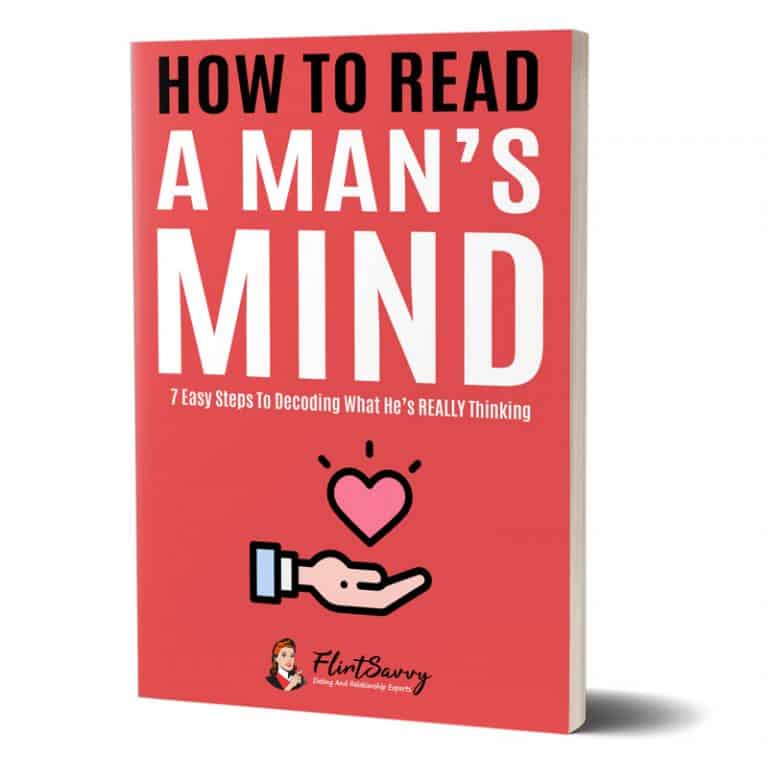Fights with your significant other can be tough, leaving you feeling hurt and frustrated. But what happens after the argument is just as important as the fight itself.
How do you move forward and repair your relationship? In this article, we’ll explore some helpful tips and insights on what to do after a fight with your boyfriend.
From taking time and space to reconnecting and apologizing, we’ve got you covered. So take a deep breath, relax, and let’s dive in.
What To Do After A Fight With Your Boyfriend?
After a fight with your boyfriend, it’s important to give each other some time and space. Emotions can run high during an argument, and it’s difficult to think about repairing your relationship when you’re feeling upset. Taking a break can give you both a chance to calm down and consider the situation logically and emotionally.
It’s also important to listen to each other with intention. During the argument, you both had separate experiences, and it’s crucial to understand your partner’s perspective rather than just your own. Take turns acting as the listener and speaker, focusing on what you perceived and felt during the argument without criticizing or blaming each other.
If the argument resumes when you come back together, try taking a longer break. You can also discuss ahead of time how long of a break works for each of you before attempting to resolve the issue.
After some time has passed, tell your boyfriend that you’re open to hearing about any lingering frustrations or questions they may have. If they want to revisit the issue after a few days, don’t turn your back on them. Non-verbal communication is just as loud as yelling, so make sure to reflect back what they’re telling you and check in to make sure you’re understanding them correctly.
Take ownership of the things you said in anger and apologize for specific outbursts without retreading over what your boyfriend said or placing blame. Explain that you lost your cool in the moment and assure your partner that you will try to be more aware in the future.
Finally, apologize and reconnect with your boyfriend. Acknowledge your negative reactions and behaviors, assure your partner that you will try not to repeat hurtful reactions and harmful words, and work together to move forward.
Take Time And Space To Cool Down
When emotions are running high, it’s important to take a step back and give each other some space. This can help both of you to calm down and think more clearly about the situation. It’s important to discuss ahead of time how long of a break works for each of you before attempting to resolve the issue. If the argument resumes when you come back together, try taking a longer break.
It’s also important to take some space for yourself. After things get heated, you might need some time alone to reflect, recover, or heal. You might need to not be around your partner while the bulk of your negative feelings pass, and that’s okay. However, if your partner needs space and you don’t, it can be disconcerting. Avoid clinging and give them the time they need to reflect as it can strengthen the relationship in the long-term.
During this time, reflect on your own thoughts and feelings as well. Don’t punish your partner for needing space and don’t take it personally. It’s important to wait to talk until both of you have cooled down. Space can give you the necessary time to cool down and avoid escalating the argument further.
If you need space, at least reassure your partner that you love them and things will be okay. A little emotional support can go a long way, even if you need to go cool off. Taking time and space to cool down can help both of you to come back together with a clearer mind and a better perspective on how to resolve the issue at hand.
Reflect On The Argument And Your Feelings
Once you have both had some time to cool down, it’s important to reflect on the argument and your feelings. This can help you process what happened and prevent similar arguments from happening in the future.
Consider writing in a notebook or journaling about the argument. This can help you organize your thoughts and summarize what happened. It may also help you move on from the argument in a more positive way.
Ask yourself questions like: How did the argument make you feel? What might it say about your relationship? Do you want to address the other person and how can you help them see your side of the story?
It’s important to be gentle with yourself and not beat yourself up or make decisions straight away. Arguments happen in all relationships, and they’re not a source of shame. Reflecting on the argument can even strengthen your relationship by pushing you to reaffirm your commitment or open up more.
If you find yourself upset from arguments started by an insistent or even abusive partner, it’s important not to place blame on yourself. You’re never responsible for someone else’s behavior. Reflecting on the argument will simply help you adjust your own reactions and mindset.
Talking with a trusted friend or therapist can also be helpful in processing your feelings and finding emotional support. Therapists can help you place the argument into larger patterns of your behavior and relationships. Remember that reflecting on the argument is an important step in moving forward and strengthening your relationship with your boyfriend.
Reconnect And Communicate With Your Boyfriend
One of the most important steps in repairing your relationship after a fight is to reconnect and communicate with your boyfriend. This involves actively listening to each other and understanding each other’s perspectives without judgment or blame.
It’s essential to take the time to reflect on your own emotions and thoughts before attempting to communicate with your boyfriend. Take a pause, do something else, breathe, meditate, take a walk, or engage in any activity that helps you calm down and focus.
When you’re ready to talk, start by acknowledging your boyfriend’s feelings and experiences during the argument. Reflect back what they’re saying and check in to make sure you’re understanding them correctly. Avoid interrupting or dismissing their emotions, even if you don’t agree with them.
Apologize for any hurtful things you said during the argument without placing blame or retreading over what your boyfriend said. Take ownership of your actions and assure your partner that you will try not to repeat hurtful reactions and harmful words in the future.
Reconnecting with your boyfriend also involves physical touch and non-verbal communication. Sometimes words aren’t enough, and silence and loving touch can speak volumes. Try a deep, connected hug and breathe in and out together, hold hands, or look into each other’s eyes. This can activate the parasympathetic nervous system and help you calm down, feel safe, and re-establish closeness without saying a thing.
Remember that reconnecting after a fight is only possible if both parties commit to never repeating past mistakes. Work together to move forward by expressing ways you can grow and things you can do differently in the future. Conflict is never fun, but it can provide opportunities for both individual and mutual growth within your relationship.
Apologize And Take Responsibility For Your Actions
One of the most important steps to take after a fight with your boyfriend is to take responsibility for your actions. It’s easy to get caught up in the heat of the moment and say things that you don’t mean, but it’s important to own up to those actions and apologize for any hurtful words or behaviors.
Start by acknowledging what you said or did during the fight. If you said things that you regret, take responsibility and tell your boyfriend what you did and that it was wrong. It’s important to avoid blaming your partner or making excuses for your behavior. Instead, focus on taking responsibility for your actions and acknowledging the impact they had on your relationship.
Apologize for specific outbursts without retreading over what your boyfriend said or placing blame. Explain that you lost your cool in the moment and assure your partner that you will try to be more aware in the future. This shows that you’re taking responsibility for your actions and are committed to working on improving your communication in the relationship.
Taking ownership of your actions also means being open and willing to listen to your partner’s perspective. Ask them how they felt about what happened and listen with intention. Avoid interrupting or getting defensive, and instead focus on understanding their point of view.
By taking responsibility for your actions, apologizing, and actively working to improve communication in the relationship, you can move forward from a fight with your boyfriend in a positive way. Remember that it takes effort from both partners to build a healthy relationship, so be open and willing to work together towards a stronger connection.
Work Together To Find A Solution And Move Forward
Once you’ve both given each other space to air out your respective worries and both feel heard and understood, it’s time to work together towards finding a practical solution. This is especially important if the argument was about a specific issue that needs to be resolved for the relationship to move forward.
For example, if the argument was about jealousy, it’s important to acknowledge that insecurity is a common feeling in relationships and work together to find ways to make each other feel more secure. This could mean showing extra affection in situations that trigger jealous anxiety or listening to each other’s perspective without immediately becoming defensive.
It can be hard not to turn away when someone is angry with you, but it’s important to remember that anger is a secondary emotion and there may be underlying feelings of sadness, hurt, insecurity, jealousy, or frustration. Take the time to really listen to your partner and try to understand what’s really going on. Don’t turn your back or pretend you’re doing something important while your partner is trying to communicate with you – you might miss something important that clues you in on what’s really happening.
It’s also important to take a pause and avoid rumination. Pay attention to what’s going on inside your body and try not to over-identify with negative thoughts. Instead, try to adopt a “receptive” stance and notice any critical inner voices intensifying your response. Acknowledge your emotions and explore whether the emotion may be primary, secondary, adaptive, or maladaptive.
Remember that all relationships experience disagreements and arguments. It is not unhealthy to fight occasionally. However, it’s crucial to repair the hurt feelings and resolve the argument; otherwise, resentment can build and negatively impact your connection with your partner. Commit to a small, actionable step each of you can take to rebuild trust, security, and support for each other going forward. These small actions show your partner that you’re committed to building healthier patterns together.






